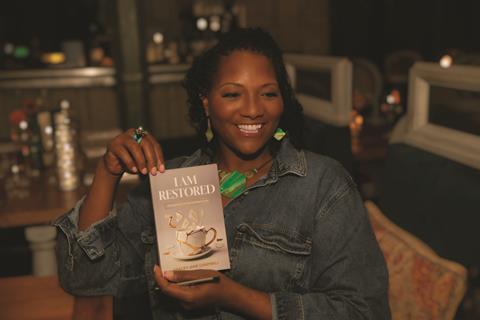Tracey-Jane Campbell was a successful music artist. But behind closed doors, she was struggling to come to terms with childhood trauma and abuse. Now, she wants to help others

It doesn’t matter who you are, there are elements of the human experience that you share with millions of others – breathing, ageing, feeling. To that list, we could add: belting out the words to ‘You raise me up’ in the solitude of your shower or the camaraderie of carpool.
The pop anthem was first made famous by Josh Groban, and later Westlife (who were apparently reluctant to record a ‘gospel song’ at first). But it was written by the Irish-Norwegian group Secret Garden, and the voice on their original belongs to Tracey-Jane Campbell. It was the catalyst for what would become a long and award-winning music career that would see Campbell perform for royalty and popes as well as tour the world.
Early life
Singing had always been part of Campbell’s life, but it was not necessarily her career plan. As a child, she was involved in school plays and local theatre. Then, aged 18, her cousin took her into a recording studio, and she began to discover her true voice.
“But it wasn’t something I made happen,” she adds. “It was more like God reminding me: ‘This is in you.’ Opportunities opened. I walked through the doors. It was a process – trial and error, listening to advice, ignoring the wrong advice.”
One piece of counsel she regrets ever entertaining was the notion that a music artist must pick a single genre and stick with it. It paralysed her. “I grew up listening to jazz, classical, gospel, soul – and when I wrote songs it was a melding of these things.”
In time she learned to be comfortable. “I couldn’t categorise myself, but I had to let that go and just be. I’ll let other people decide what they see me as.”
Temptations
There are unique temptations for those who grace stages. Campbell remembers the adoration she experienced in Asia being so intense that it forced her to confront the discomfort of being idolised – especially as a woman of faith.
“Asia is unlike touring anywhere else in the world,” she says. “The fans are different. They’re incredibly dedicated – and there are so many of them.
“After the shows, people would come up to you with their adulation. It was very uncomfortable. You’ve got that thing in the back of your mind about idolatry – and at first, it was really difficult to deal with.”
Being praised and lauded can lead to problems, she explains. “When we start to believe we are more than we are, it’s dangerous.”
But Campbell also understands that God gave her the talents and gifts to perform. “It’s a partnership,” she says. “A co-working with God. I give God thanks for the opportunities and look to what I’m meant to take from them.”
Identity in Christ
Such temptations were minor compared to issues of childhood trauma and abuse which Campbell has spent much of her adult life coming to terms with. She was first married at 20 – an age she looks back on as “too young” – and the relationship lasted seven difficult years.
“People say all the time: ‘Why don’t they just leave?’ – it’s so much more complex than that. You don’t want your marriage to be seen as a failure, and you carry an unjustified level of blame for that brokenness.

“I was a child, in a lot of ways,” she reflects. “My former traumas were making a lot of the decisions for me.”
Campbell says that she does not blame God for what she went through, and always felt he was with her in the midst of it. “One of my favourite scriptures is Psalm 84:6: ‘When they walk through the Valley of Weeping, it will become a place of refreshing springs’ [NLT].”
The end of her marriage was necessary, she says, but it still felt like a kind of death. “Even though it was a traumatic situation I was leaving, there was still a sense of grieving,” she says. “Not the terrible situation you came out of, but the fact that this union you had desired and planned to be lifelong has died. It is a death of sorts.”
Years later, Campbell unexpectedly found love again. She met her now-husband while working in Switzerland. He was a musician too, and for many years, they were just friends. “A few years ago, we suddenly noticed each other,” she smiles. “It was a surprise, because I was not looking. I was content. And then he showed up!”
This time around, Campbell entered marriage with more self-awareness: “My choices are now made from a place of my identity in Christ. I’m not morphing myself to please or to fit in so someone will pick me.”
Restoration
Her new book I Am Restored expands on the themes of her song by the same name and was born out of what she describes as a lifelong inclination to write her “questions, ramblings and thoughts”. She writes from the rubble, referencing the realities of life.
“There’s an idea we must be strong,” she explains, admitting that it’s easy to wear a mask and pretend everything is OK. “I remember telling a cousin [about past abuse I’d experienced] and they said: ‘I never thought of you as that person, because of the image you put on.’” Writing down reflections and lessons from her life is an attempt to help others know that they do not have to pretend everything is OK if it is not.
“Healing is a journey. We like to think it’s just a prayer and you’re done. But it is a journey. And that’s why I wrote the book. I call it a companion for the healing journey.”
Tracey-Jane Campbell was speaking to Premier’s Cassandra Nelson. Tracey’s book I Am Restored (PublishU) is available now






































No comments yet